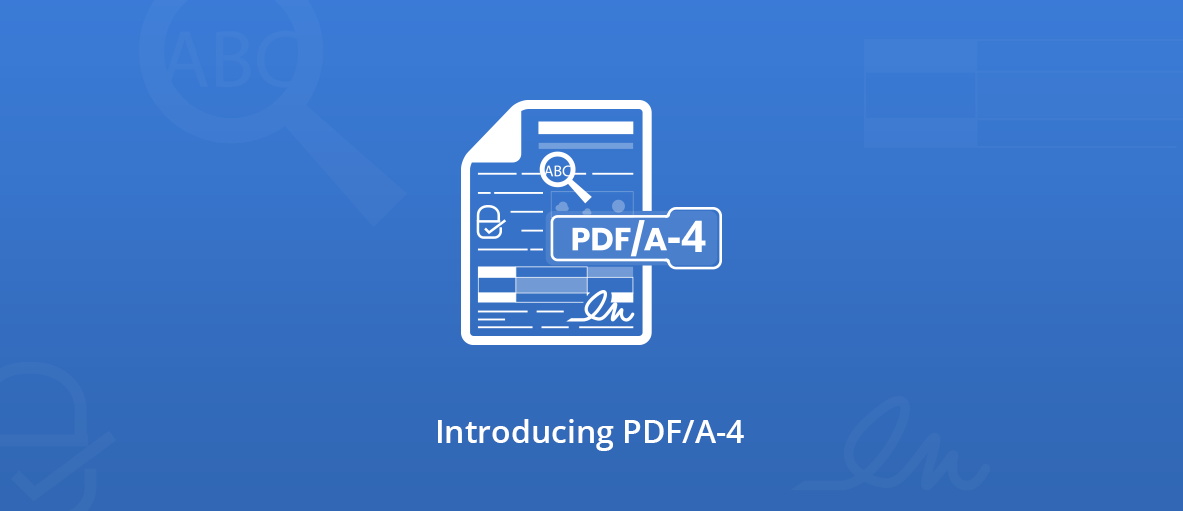We’re happy to provide conversion and validation support for all PDF/A versions, including the latest PDF/A-4 ISO standard (19005-4:2020) and its subsets PDF/A-4e and PDF/A-4f.
Introducing conversion and validation support for a new standard generally depends on two things: a good understanding of the specification and many examples to test the engines. In the case of PDF/A, taking care of the conversion engine is only the first step.
PDF/A is a critical format used for legal archival and preservation of electronic documents, and companies must be sure that the converted documents pass validation tests.
If the PDF/A-4 converter is relatively straightforward to do, especially since we’ve been implementing the PDF/A specification from its first version, it is not the case for the validator. The adoption of PDF/A-4 is quite recent. Even if the specification was released in 2020, “real-world” documents, aka documents that were not created for the sole sake of testing, are still scarce.
The market is still slow on the PDF/A-4 adoption because software editors are waiting for competitors to release their converter and validator engines, so they have a point of comparison before starting to build theirs. But companies cannot develop engines out of thin air if people do not use the format. So until recently, we were all in a chicken or egg situation with PDF/A-4.
This is why we’re only releasing PDF/A-4 support now because we can find enough resources to provide reliable engines.
Do you want to know more about PDF/A conversion and validation challenges? We presented a webinar about it at the last PDF Days Europe, here is the replay:
